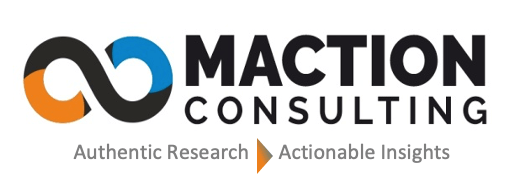In today’s data-driven world, the lifeblood of any successful business lies in understanding its customers. Market research plays a pivotal role in this, gathering invaluable insights into consumer behavior, preferences, and needs. However, the very act of collecting and storing sensitive customer data raises significant concerns about security, privacy, and the trustworthiness of the information itself. Enter blockchain technology – a revolutionary solution poised to transform how market researchers handle data, ensuring its integrity and fostering greater trust among participants and stakeholders alike.
Imagine a digital ledger, not controlled by a single entity, but distributed across a network of computers. Every piece of information added to this ledger, known as a block, is cryptographically secured and linked to the previous block, forming an immutable chain. This is the essence of blockchain. Once data is recorded, it cannot be altered or tampered with, creating an unparalleled level of transparency and security.
For market researchers, the implications are profound. Traditional methods of data collection and storage often rely on centralized databases, which can be vulnerable to cyberattacks, data breaches, and even accidental modifications. Blockchain offers a robust alternative, creating a secure and auditable trail of every data point collected. This inherent security can significantly enhance the trustworthiness of survey results, as participants can be assured that their responses are protected from manipulation.
Furthermore, blockchain can streamline the data collection process itself. By leveraging smart contracts – self-executing agreements with the terms of the agreement directly written into code – researchers can automate incentives and rewards for survey participation, ensuring fair and transparent compensation. This can lead to higher response rates and more engaged participants.
However, the adoption of blockchain in market research is not without its challenges. As highlighted in the reference, global economic factors and geopolitical landscapes can significantly impact its feasibility. The imposition of tariffs, such as those on computer chips and storage devices, directly increases the cost of implementing and maintaining blockchain systems. This can create a barrier to entry, particularly for smaller research firms with limited budgets.
Globalization also presents a complex web of regulatory hurdles. While the interconnected world necessitates the sharing of research data across borders, different countries have varying data privacy regulations. For instance, China’s data localization laws mandate that data generated within its borders must be stored locally. This necessitates the creation and maintenance of separate, compliant blockchain infrastructures for each region, adding significant cost and complexity for international research agencies.
Despite these challenges, the potential benefits of blockchain for ensuring data safety and trustworthiness in market research are compelling. Let’s explore two hypothetical case studies:
Case Study 1: Enhancing Trust in Pharmaceutical Trials
A global pharmaceutical company conducts clinical trials to test the efficacy of a new drug. Traditionally, data from patient volunteers is collected through various channels and stored in centralized databases. Concerns about data integrity, potential bias, and the security of sensitive patient information are paramount.
By implementing a blockchain-based system, the company can create an immutable record of all trial data, from patient consent forms to reported outcomes. Each data point is timestamped and cryptographically linked, ensuring that no information can be altered retroactively. Smart contracts can automate the distribution of compensation to participants upon completion of specific milestones. This enhanced transparency and security build trust among patients, researchers, and regulatory bodies, ultimately strengthening the credibility of the trial results.
Case Study 2: Secure and Transparent Consumer Surveys
A market research firm conducts a large-scale survey to gauge consumer preferences for a new line of sustainable products. To ensure the integrity of the data and encourage participation, they utilize a blockchain-based platform.
Each survey respondent is assigned a unique, anonymized digital identity on the blockchain. Their responses are recorded as secure transactions, making them tamper-proof. Smart contracts automatically reward participants with digital tokens upon completion of the survey. The anonymity provided by the blockchain assures participants that their individual responses cannot be linked back to them, fostering honest and unbiased feedback. The immutable nature of the data provides the research firm and its clients with a high degree of confidence in the accuracy and reliability of the findings.
In conclusion, blockchain technology holds immense promise for revolutionizing market research by providing an unprecedented level of security and trustworthiness for customer data. While economic factors like tariffs and the complexities of global data regulations pose significant challenges, the potential to enhance data integrity, streamline processes, and build stronger trust with participants makes blockchain a compelling technology for the future of market research. As the technology matures and solutions to these challenges emerge, blockchain is poised to become an indispensable tool for businesses seeking reliable and ethically sourced customer insights.


